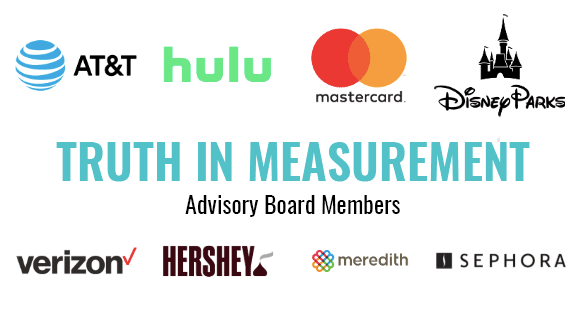Truth in Measurement launches to create standards for sharing ad measurement data
- Fahad H

- Jan 16, 2019
- 3 min read
Another industry group has launched to foster ad industry transparency.
Called Truth in Measurement (TIM), it is spearheaded by Thunder Experience Cloud, an ad server that focuses on people, rather than cookies, for targeting.
The key problem statement that TIM is looking to solve, Thunder CEO Victor Wong said in an interview, is: Can the advertising ecosystem share data while protecting consumer privacy and platform data?
‘Community gardens,’ instead of walled gardens. As with everything in digital advertising, a key factor in this quest is the big “walled gardens,” especially Facebook, Google and Amazon.
These companies keep a tight hold on targeting performance data, keeping advertisers from accessing and using that targeting data outside of their platforms. But because TIM’s focus is on advertising analytics, verification and attribution data, not targeting, the hope is Facebook, Google and other big walled gardens might participate.
Wong noted the statement last fall by Brian Lesser, CEO of AT&T advertising unit Xandr, that his company aims to function like a ‘community garden’ to share data and make independent attribution easier for customers.
User IDs, TBD. One envisioned outcome for TIM, Wong said, is that “a brand like P&G would know how many times it has [delivered] an ad to users across platforms.” To do that, the brands and advertisers would have to agree on a user ID, so that Turner, Yahoo and Meredith all know they are referring to the same anonymized user.
There are several ID initiatives underway, most notably from the IAB Tech Lab’s DigiTrust and the Advertising ID Consortium, but Wong said TIM hasn’t decided on the ID or IDs it supports. From TIM’s point of view, the IDs would only be useful for measurement, not for targeting.
Wong said that, while the Media Research Council (MRC) is also trying to develop a transparent measurement of ad data across platforms, it is “about media delivery common currency,” like having the same unit of measurement on TV as on Facebook. IAB Tech Lab’s effort, he said, is more focused on buying and selling media, and isn’t about trying to improve ad measurement data sharing.
For the moment, the new organization is focusing on creating technical and legal standards for measuring ads and verifying results. TIM is currently a Thunder working group, and an organizational meeting is planned for March, with Facebook, Google and Amazon among the invitees.
Current TIM members include Verizon, Hulu, Meredith, Hershey’s, MasterCard, Disney Parks and Tyson Foods.

Why you should care. The TIM initiative underscores marketers’ rising frustrations around data transparency in advertising. “Some major platforms have begun redacting data such as user IDs they previously provided, and this is something that can no longer occur in the industry,” Tyson Foods director of media innovation Trace Rutland said in a statement.
In May, Google announced it would no longer provide to marketers its DoubleClick ID, which is used to generate cross-platform measurement in the DoubleClick Campaign Manager. Advertisers would need to use Google’s own Ads Data Hub to obtain those metrics.
When that was announced, Wong told MarTech Today that the move meant brands and agencies using DoubleClick logs could no longer independently verify ad delivery frequency by cookie or person, analyze the true reach of media campaigns, de-duplicate conversions and clicks, report on conversion rates or identify unique site traffic.
Additionally, he said at the time, media sellers “are also now further pushing their own measurement and attribution solutions in a bid to grade their own homework and prevent cross-platform comparison.”
This story first appeared on MarTech Today. For more on marketing technology, click here.




Comments